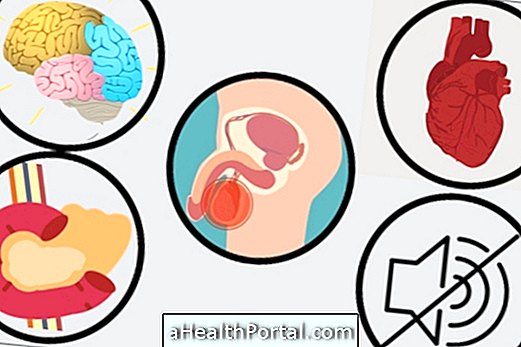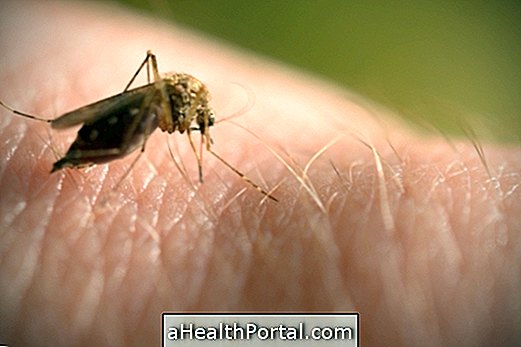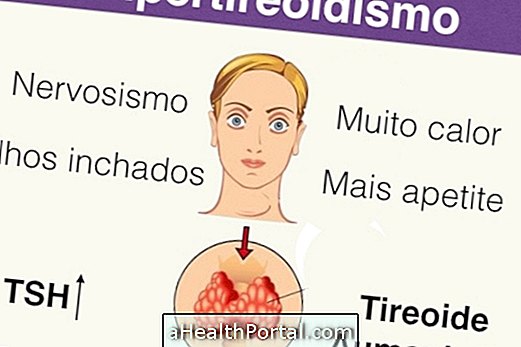Mumps are a highly contagious disease transmitted by air through droplets of saliva or sprouts caused by the Paramyxovirus virus. Its main symptom is the swelling of the salivary glands that generates an increase of the region located between the ear and the mandible.
Usually the disease progresses benignly, however in some cases, there may be complications that arise during or shortly after the mumps begin to manifest. This can happen because the virus multiplies in the region in the mucosa of the region of the nose and larynx but can reach the blood and spread through the body, being that the favorite places of this virus are the salivary glands, and for that reason mumps occurs, meninges of the central nervous system, testes and ovaries. Thus, the complications of mumps may be:

1. Viral meningitis
It can occur because the mumps virus is attracted by the central nervous system, and so there may be inflammation of the meninges, which are a tissue that lines the entire nervous system: the bone marrow and brain causing a severe headache. Usually this meningitis is benign and does not bring great complications to person. Find out how your treatment is done by clicking here.
2. Myocarditis
It is an inflammation in the heart muscle that is usually only discovered through specific exams and is not serious, nor does it bring about major changes or complications.
3. Deafness
When the person has swelling of only one side of the face, there may be deafness on this side, which may be temporary or permanent, so if the person is mumps and observes that they are having difficulty hearing any sound, they should return to the doctor to check what can be done.
4. Orquite
In some cases, in humans, Mumps can cause an inflammation known as Orquite, which destroys the germinal epithelium of the testicles and can cause infertility. Learn why this happens on Understanding why Mumps can cause Infertility in Man. In women, this type of complications is rarer, but this disease can trigger an inflammation in the ovaries known as oophoritis.
5. Pancreatitis
Although rare, pancreatitis may occur after mumps and is characterized by the onset of symptoms such as abdominal pain, chills, fever, and persistent vomiting, and therefore, if you notice these symptoms, you should contact your doctor to begin treatment for pancreatitis . Learn more about pancreatitis and treatment by watching the following video:

Spontaneous abortion
When the woman gets mumps in the first trimester of pregnancy, she risks losing the baby because of a miscarriage that occurs when the woman's own body struggles with the baby because of a miscarriage. Therefore, all pregnant women who have already taken the MMR vaccine should not be close to people with mumps, always washing their hands and using alcohol in gel after washing their hands.
How to treat mumps to avoid complications
The treatment for mumps is done in order to control the symptoms of the disease because a very specific treatment is not necessary to eliminate this virus. Your doctor may recommend:
- Paracetamol to reduce pain and fever;
- Rest and hydration to heal faster;
- Paste feeding to facilitate deglutition;
- Gargling with warm water and salt to relieve neck discomfort;
- Put a cold compress on the face to lessen the pain the discomfort on the face;
- Avoid acidic foods like orange, lemon, pineapple plus salt-rich foods because they stimulate the production of saliva, increasing pain.
As with dengue, the use of medications containing acetylsalicylic acid in its composition, such as Aspirin and Doril, is not recommended. See other names of medicines that should not be used by clicking here.
Prevention of mumps is done by taking the tetraviral vaccine that protects against measles, mumps, rubella and chicken pox.



























